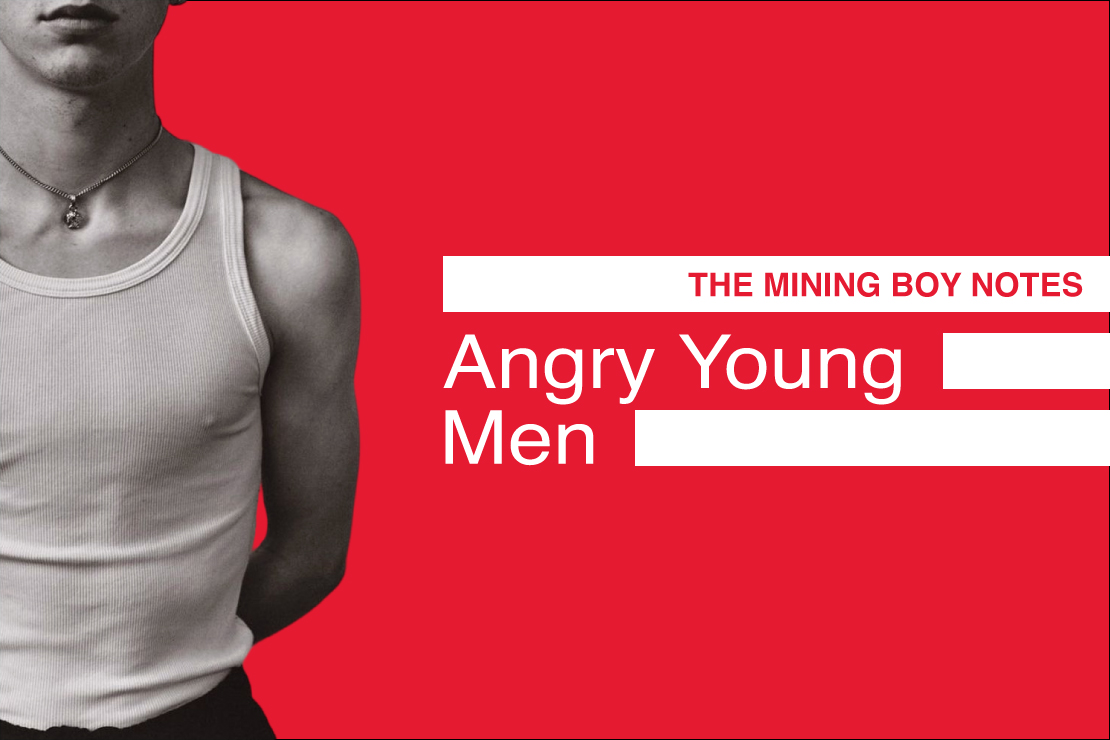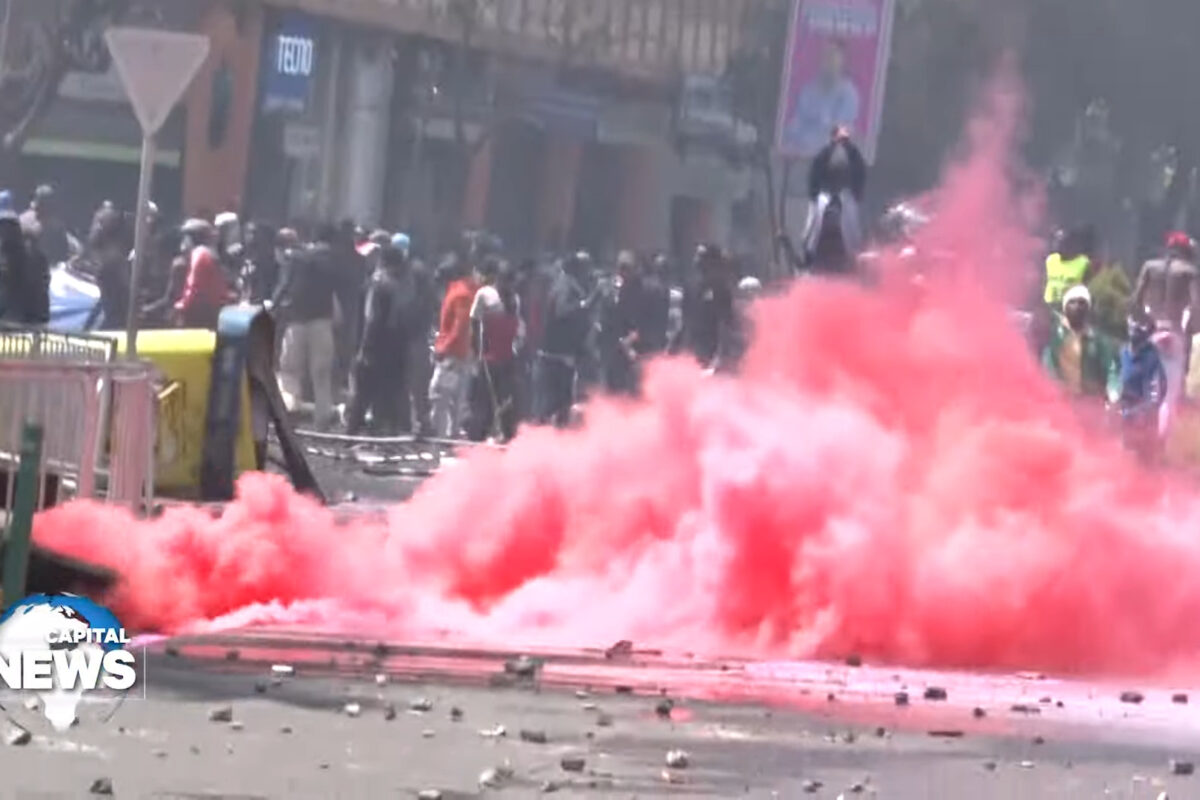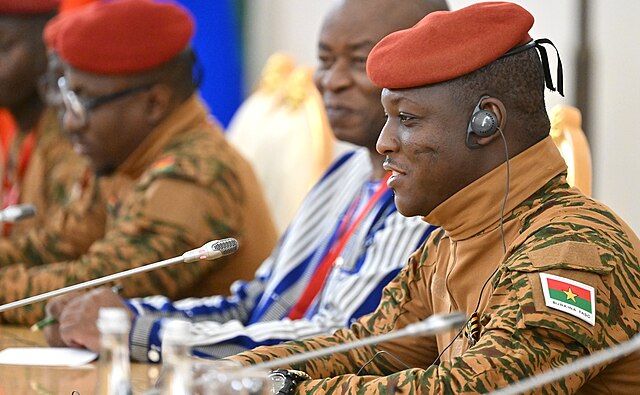I’m from a small mining town that was occupied by the Russian army in February 2022. Come December that year I would be working on a novel, THE MINING BOYS. In this novel I describe how, during another shelling, the main character imagines a missile hitting the cemetery where an old friend is buried. I don’t remember if I removed the line about corpses flying into the air. But that’s beside the point. Today, April 11, 2024, the Ukrainian army shelled my town again. One of the missiles hit this same cemetery.
At the beginning of the war, it was not easy for me to decide which side I was on. All I knew was that under no circumstances would I go to war. If I was forced into the war, I had to be prepared to kill the one who taught me to shoot, and after that find the strength to shoot myself. These are conversations I have with myself.
But this would be a last resort. Pretty radical. You don’t have to resort to radical actions to be opposed to war. Sometimes it’s enough to just sabotage it. More details about my position on the war can be found in the interview “These are Truly Dangerous people”.
Those who return from war due to injuries are more likely to want the war to end quickly than those who are not threatened with participation in the war.To predict how these positions might change post-war, we can turn to the writings of the ‘‘angry young men’’.
One author of the movement, which originated in Britain after World War II, is Alan Sillitoe. He describes the life awaiting those who returned from the front. A generation of heroes who, in peacetime, found themselves in bars and in hard physical work. Instead of honor, they received the inability to integrate into a new life. Expecting gratitude from society, yesterday’s soldiers see that life goes on, but what happened in the war prevents them from living full lives. Will the situation be reproduced in Russia and Ukraine after the end of this war? Yes, with a high probability, because nothing indicates change.
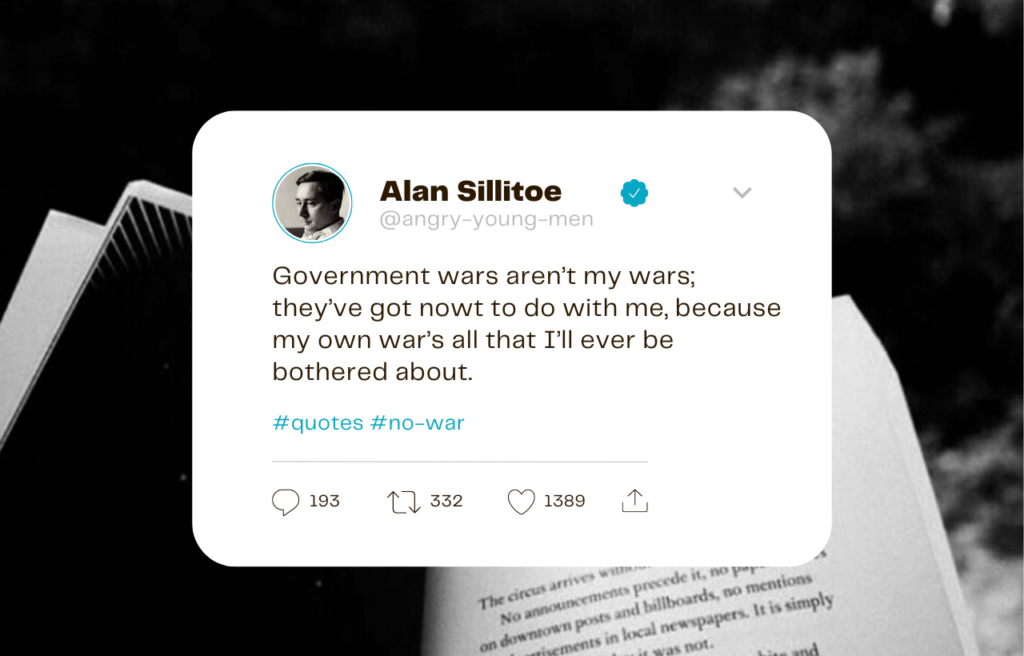
Some fight. Others make money. You go to war as a volunteer, but as it turns out it’s impossible to leave voluntarily. It turns out your rights can be taken away in wartime. And if we are to learn a lesson from this war, it must necessarily lead to a review of the rights of soldiers in wartime. But now we are observing opposite processes. While a writer discusses human rights, a businessman finds a way to profit from the war, but of course only the writer is scorned.
Anything based in hatred is up for debate. The characters in Alan Sillitoe’s works are also aware of this. In the story Uncle Ernest, he describes several days in the life of a former soldier. He works and drinks. He has no sources of entertainment. Suddenly, he meets two girls in a cafe who don’t have enough money to buy sweets. He decides to pay for them. They talk, and the man invites them to meet again so that he can treat them to something delicious once more.
Gradually, the girls begin to take advantage of the kindness of their new acquaintance, but this does not phase him. He sees purity in them. He is pleased to be in their company, because this way he becomes cleaner himself, until someone calls the cops. A man warns visitors of a cafe pedophile. The cops don’t understand the former soldier’s intentions, so they intimidate him into cutting contact with the girls. And the man has no choice but to return to the bar, where alcohol and loneliness await him.
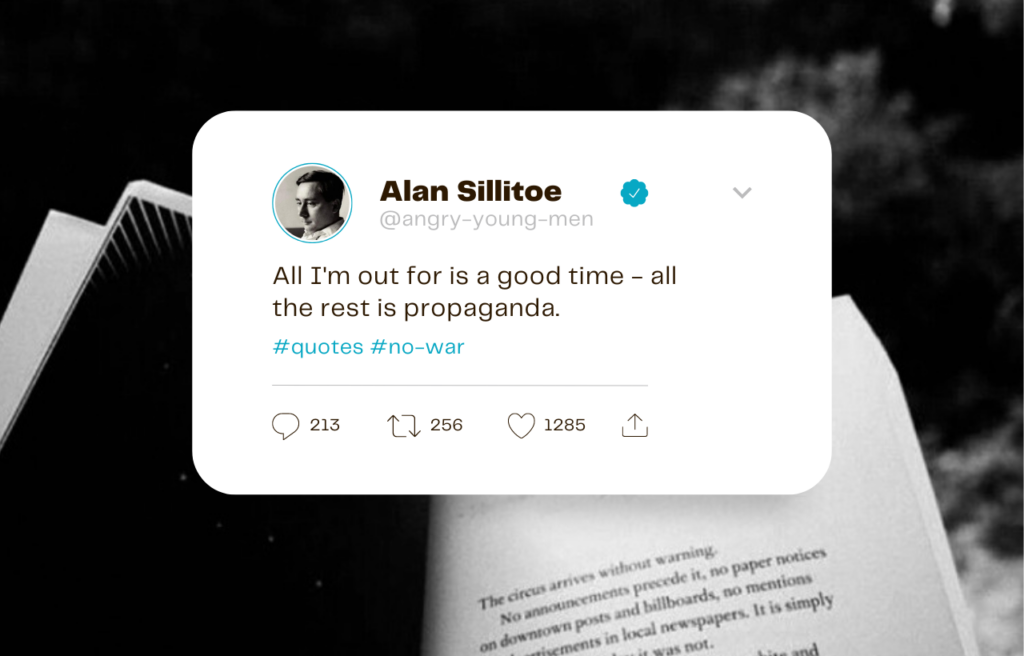
Another of Sillitoe’s short stories, The Loneliness of the Long-Distance Runner, is a portrait of sabotage in action. The main character ends up in a juvenile detention centre for theft. The colony’s leadership notices the kid’s talent as a runner. The management encourages him and even promises to improve his living conditions if he wins one of the competitions they have organised. The runner knows that they will place bets and trains so that they have no doubt that he will win. He does all this with one goal – to lose in the competition. And he loses on purpose, although he knows that doing so will be detrimental to his living conditions. Why should he take them up on their offer? He does not want to merge with his ideological enemy – the organisation that stole his freedom.
Surprisingly, neither in Ukraine nor beyond its borders today are there any protests of the male population against forced mobilisation and closed borders. Waves of dissent and sabotage are absent. Although, in fact, guys in Ukraine, not only trapped in the country, but also forbidden to get an official job, are in an even worse situation than the protagonist in The Loneliness of a Long-Distance Runner.
From time to time I do hear stories of defiance. Sometimes, news surfaces about guys beating up military registration and enlistment officers or, very rarely, about arson attacks on military buildings. And at the end of March 2024, in Kryvyi Rih city, a guy grabbed a gun from a policeman and shot himself.
The two year anniversary of a full-scale war between Russia and Ukraine passed recently. Many public personalities commented on this. Many spoke about the importance of increasing arms supplies. Or about the fact that one cannot retreat on principle, one must fight to the end, because only justice can bring long-lasting peace.
I would like to ask them – have you ever read Alan Sillitoe? He’s a representative of the literary movement known as the “Angry Young Men.” He depicts post-war life so vividly that, reading his books, my face felt as if I’d been chewing on a damn sour lemon for hours. Today, we’re joyfully repeating the mistakes of his generation. We’ve been repeating them for 2 years already. One hopes the lemon supply isn’t endless.
This piece is a part of a series, The Mining Boy Notes, published on Mondays and authored by Ilya Kharkow, a writer from Ukraine. For more information about Ilya, see his website. You can support his work by buying him a coffee.
